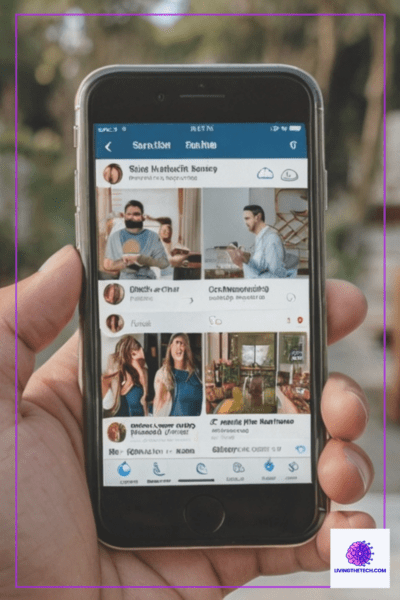Is Technology Driven Culture Making Us Worse at Work?
In the age of Technology Driven Culture, our communication landscape has been drastically transformed. With the extensive use of mobile phones, social media, instant messaging, and virtual interactions, we are more connected than ever before. However, this shift raises an important question: has Technology Driven Culture ruined our ability to communicate? While technology has undoubtedly made it easier to reach out to others, it has also altered the way we interact, express ourselves, and understand each other. I will try to delve into the impacts of Technology Driven culture on our communication skills and explore ways to break away from the “online-only communications” of our increasingly digital lives.
Has our ability to communicate changed?
In this social media, digital-driven world we live in, there are 2.9 billion active users of Facebook, 556 million on X, and our daily use of email at work is something akin to being on an intravenous drip. It’s something we rely on too heavily for business communications. I see people on my daily commute to work with their heads buried in their phones, checking the latest news or Facebook status, while others are chained to their devices via headphones. This makes for a very quiet bus, smattered with only a few face-to-face conversations. Can we still communicate with each other other than via our mobile phones?
Our Mobile phones are taking over?

In the modern world, mobile phones have become indispensable extensions of our lives (for adults and children alike), transforming the way we communicate, work, and entertain ourselves. From managing our schedules to connecting with friends, family and accessing endless information, these devices are deeply embedded in our daily lifestyle.
But as we embrace the convenience and connectivity that mobile phones offer, it’s important to reflect on how their pervasive presence is shaping our lives. Are they enhancing our productivity, or are we becoming overly dependent on them to such an extent that we can’t live without them?
Even in environments that were once quite social places, like restaurants, I see mobile phones being used at the tables – what happened to conversation? Are we losing the ability to communicate with each other, and is this being brought into our work life via an overuse of email? A report by Forbes, Email Marketing Statistics in 2024, stated that “Email remains a powerful tool for businesses worldwide. With 4.48 billion users globally, the reach is immense. Analysts predict this number will continue to grow, reaching 4.59 billion in 2025 and 4.73 billion by 2026.”
Email overload at work
It may be easy to send an email, a safe place to hide behind when giving constructive feedback or when asking for some action on an issue. But do you really need to send that email to all those people? And are you sending it to a raft of people to cover yourself if the issue doesn’t go away, or to demonstrate you’ve asked for help?
This thinking can lead to email overload at work, where you can just as easily get out of your chair (if they are in the same office as you) and go and speak to the one person who can probably help you, and get the issue resolved that way. Are you just being lazy? And if so, are you being physically lazy as well as lazy about whether the matter is resolved so that business can resume as usual?
Get out of your chair and break the email cycle
Nothing beats a face-to-face conversation. It’s hard to misinterpret, unlike an email where “tone” is easily lost or misapplied. Take responsibility to break the chain of email and call, or go and see the person you got the email from. As leaders, we need to spot this behaviour in ourselves and others by calling out the email overload at work cycle and devising a plan on how it can be broken.

Technology Driven Culture – What can you do?
Try a day a week without sending internal email, or, alternatively, pick up the phone, or go and have a coffee with your intended recipient. Or, try engaging with the intended recipient by way of one of my favourite communication tools – the walking meeting. Look at a corporate messaging/social strategy for your business so you can incorporate an instant message solution, such as Teams, Google Hangouts or Slack, where a quick message can be easily sent rather than an email.
Have a Face-to-Face
Even if you have colleagues in other countries and you want to have a face-to-face conversation, there are Video conferencing, Zoom, Teams, or Google Hangouts. Don’t let distance be an excuse for sending that email. Don’t get me wrong, email has its place, where some messages are best delivered by email. This is a sad reality of business.
However, using other tools that are familiar to users outside of the business arena may increase uptake and use. The use of social media in your personal life, if such use is anything like mine, has certainly meant a reduction in personal emails, as the sharing of photos catching up with your mates is no longer carried out primarily (if at all) via email.
A walking meeting is a great way to have a face-to-face conversation and get away from your desk #digitaldetox Share on XEvolving Communication Experiences
Technology Driven Culture has significantly transformed our communication landscape, offering both opportunities and challenges. While it has enabled unprecedented levels of connectivity and convenience, allowing us to communicate across geographical and cultural boundaries and time zones, it has also introduced complexities that affect the quality of our interactions. Digital communication can sometimes lack the depth and nuance of face-to-face conversations, potentially leading to misunderstandings and a sense of isolation. However, rather than ruining our ability to communicate, Technology Driven Culture has reshaped it, requiring us to adapt and find balance. By being mindful of these changes and leveraging the benefits while addressing the drawbacks, we can enrich our communication experiences in the digital age
Struggling with Technology Driven Culture? Then check out my blog post, Mental Health: 8 Ways to Find Balance in a Digital World
“Have you felt the impact of a technology driven culture? Share your experience below.”


Looks like the smart devices are taking over at this time (for sure). The intelligence behind the smart devices controlling the ability to think and making people to work for them. Looks like in future most of the people follow the smart devices and use less of their ability (this looks like the objective of the big companies :)).
But in my view this is all life cycle, and I have seen some people who used smart phones going back to normal phones, realising their time is not used efficiently. So I believe it is revolution.
Earlier most of the people used take instructions from kings or bosses and follow and later became individual thinkers. Now going back to follow the smart phones and might come back to individual thinking.
In my view if we make use of the technology for the benefit in a given situation and not just follow blindly, would take us to the heights.